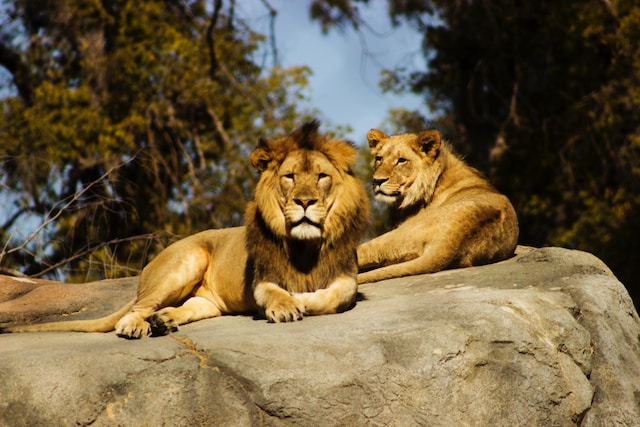In the vast realm of the animal kingdom, lions have long reigned as majestic rulers of the savannah. These formidable predators embody strength and grace, capturing the imagination of humans for centuries. However, beneath their regal facade, the kings and queens of the jungle face an array of health challenges that threaten their very existence. Today, we delve into the world of lion diagnoses, seeking to shed light on the silent struggles these magnificent creatures endure.
As apex predators, lions are vulnerable to a variety of ailments, both genetic and environmental. One of the most pressing health concerns for these big cats is infectious diseases. Living in close-knit prides, the potential for disease transmission is high. Outbreaks of ailments like tuberculosis, feline immunodeficiency virus (FIV), and feline leukemia virus (FeLV) have been observed in wild lion populations, leading to devastating consequences.
To combat these infectious diseases, wildlife veterinarians and conservationists have implemented surveillance programs to monitor the health of lion populations. Through regular blood sampling and genetic testing, researchers can identify potential disease carriers and take appropriate measures to prevent further transmission. Additionally, vaccination campaigns have been launched to protect both wild and captive lions from these deadly infections.
However, genetics also play a significant role in the health challenges faced by lions. Inbreeding, a consequence of small and isolated populations, has resulted in a higher prevalence of genetic disorders among these big cats. Conditions such as heart defects, muscular dystrophy, and neurological disorders have been documented in various lion populations worldwide. Efforts are underway to introduce genetic diversity into these populations, primarily through carefully planned breeding programs and reintroductions.
Human-wildlife conflict presents yet another obstacle for lion health. Encroachment of human settlements into lion territories has led to increased incidences of conflict, resulting in injury and stress for both humans and lions. Retaliatory killings, poaching, and habitat loss further compound the challenges faced by these magnificent felines. Conservation organizations are working tirelessly to mitigate these conflicts, employing strategies like community-based conservation initiatives and the establishment of protected areas to ensure the long-term survival of lions.
While the threats to lion health are formidable, numerous organizations and individuals are dedicated to their conservation. Collaborative efforts between wildlife veterinarians, researchers, and conservationists are expanding our knowledge of lion diagnoses and paving the way for innovative solutions. Advancements in veterinary medicine, such as remote sensing technologies and non-invasive diagnostic techniques, offer hope for improved disease monitoring and early intervention.
Understanding the health challenges faced by lions is crucial for their conservation. As ambassadors for the natural world, these majestic creatures hold a special place in our collective consciousness. By raising awareness about the complexities of lion diagnoses, we can inspire action and ensure a future where the roar of the king of beasts continues to echo across the savannah.
In conclusion, the health challenges faced by lions are multifaceted, encompassing infectious diseases, genetic disorders, and human-wildlife conflict. Through diligent research, strategic interventions, and community engagement, conservationists and experts are striving to safeguard the well-being of these iconic creatures. It is our responsibility as stewards of the Earth to rally behind their cause, preserving their rightful place in the tapestry of life.












